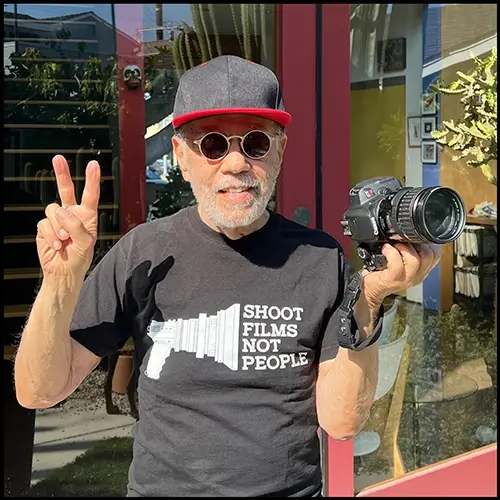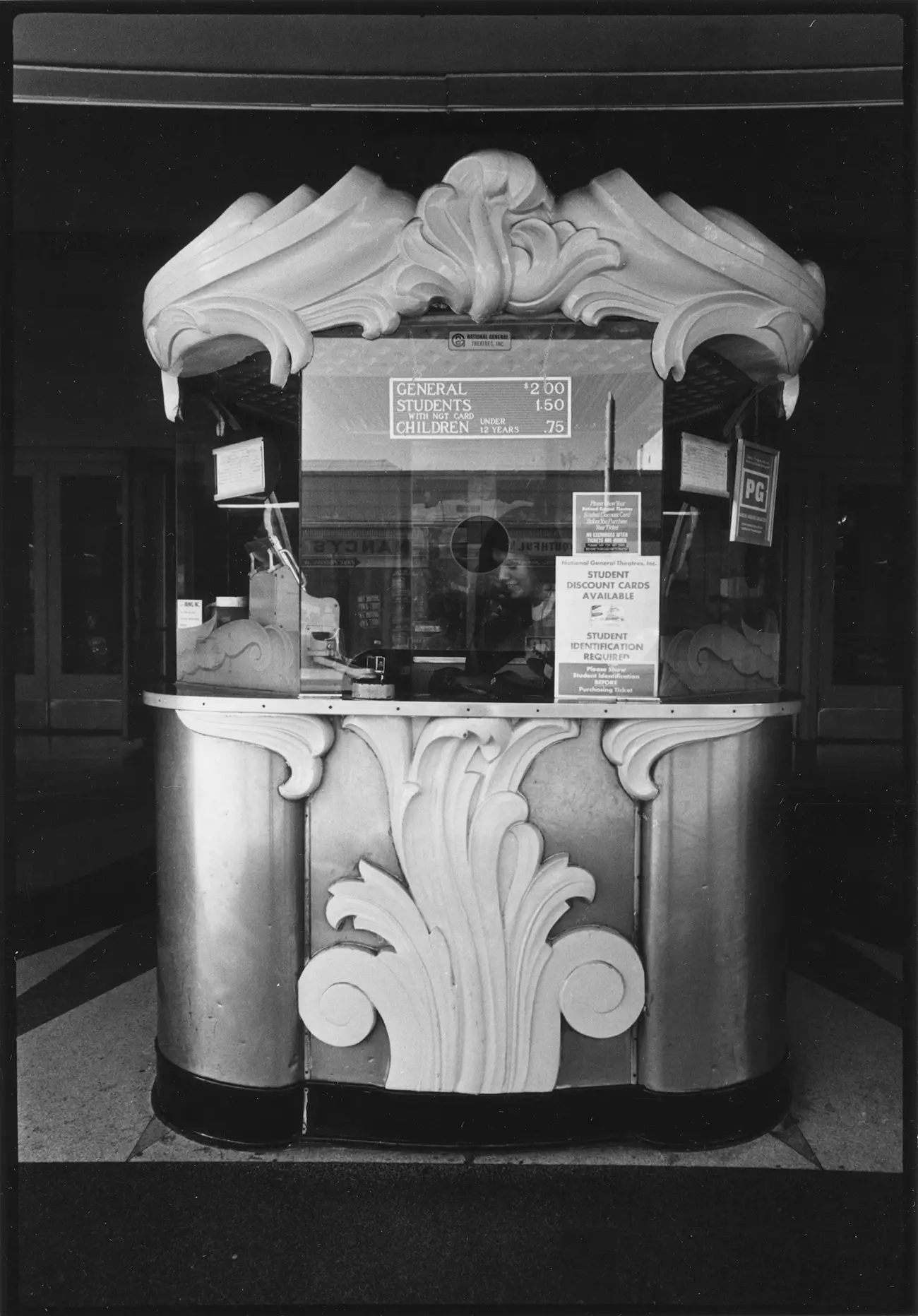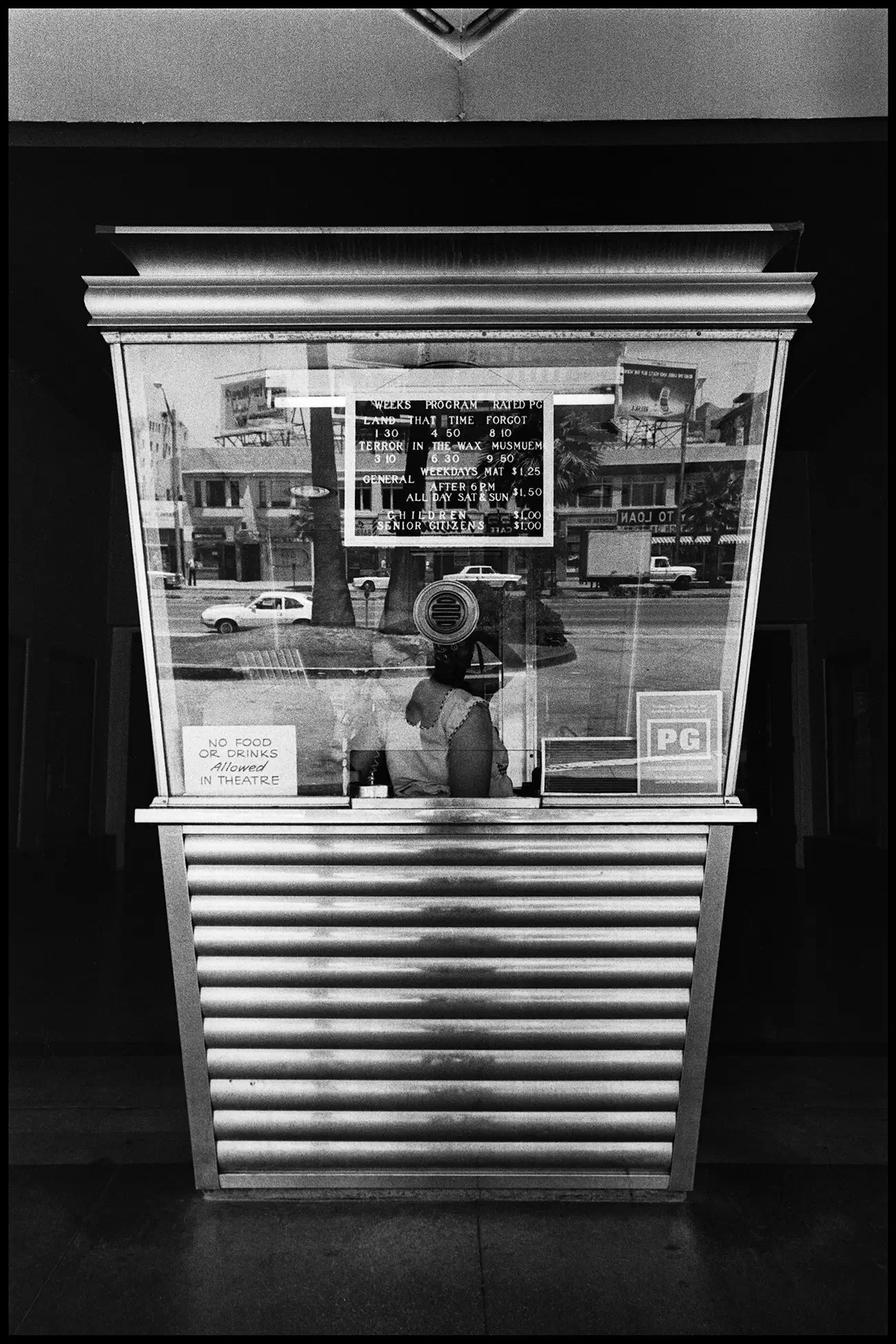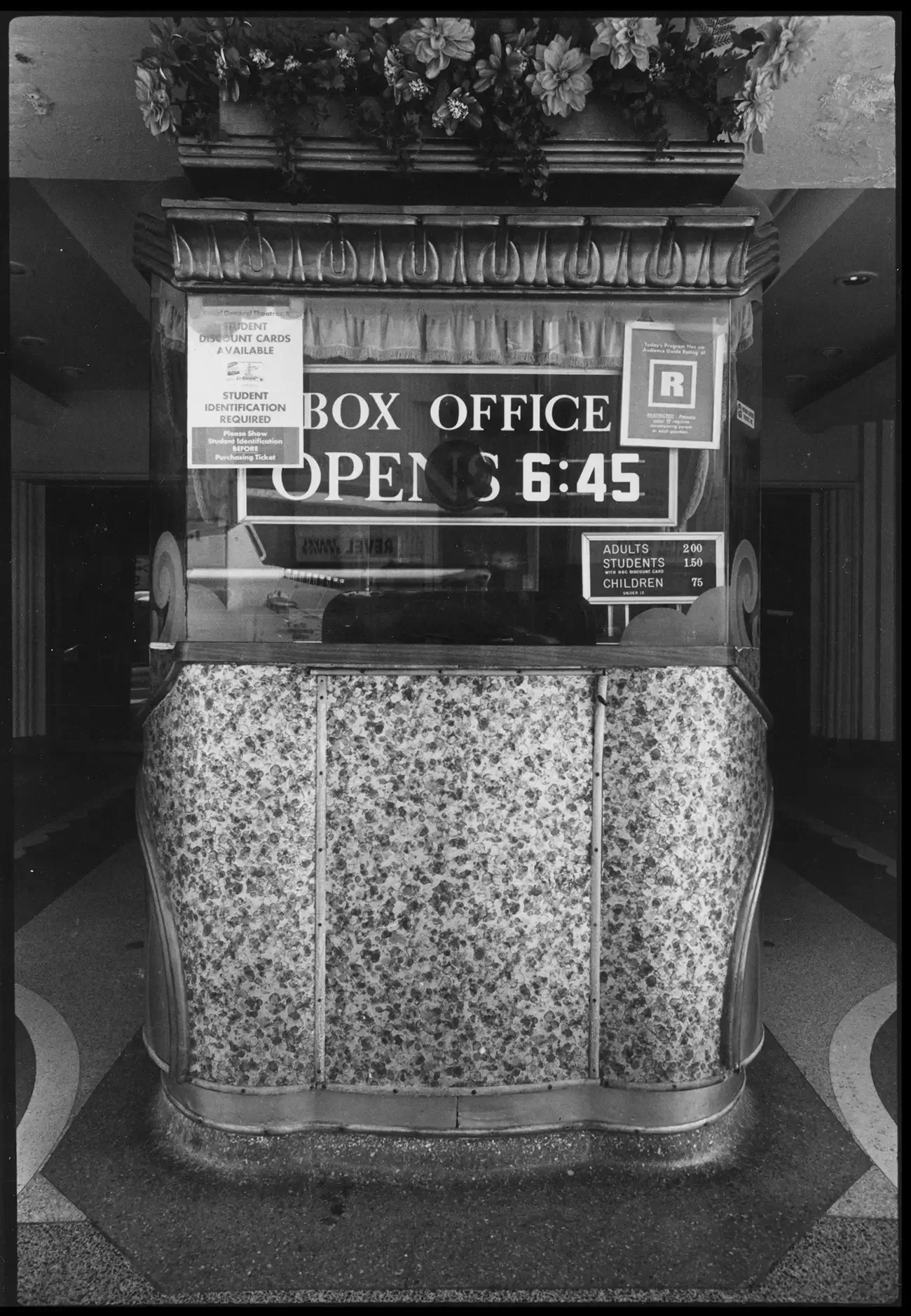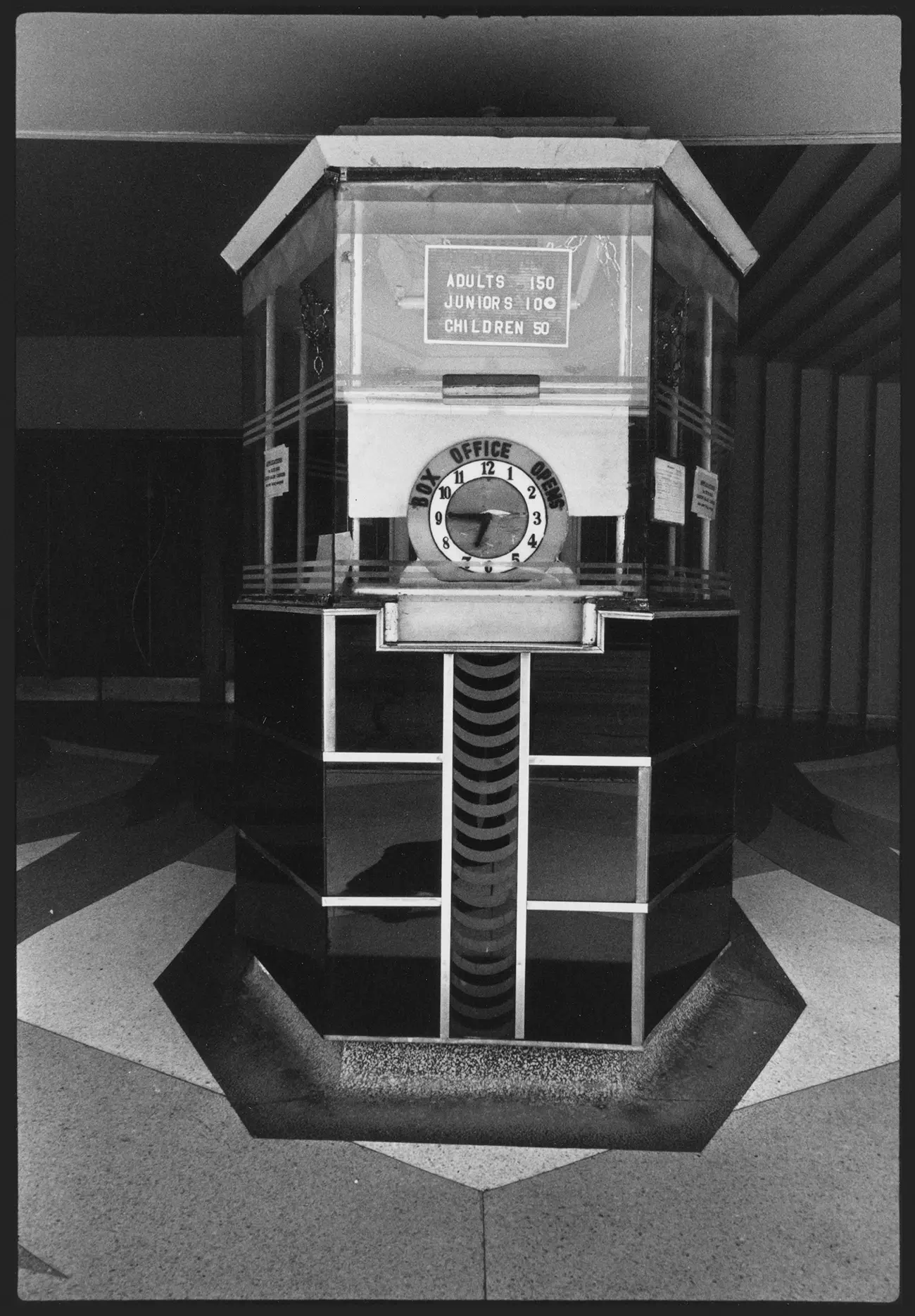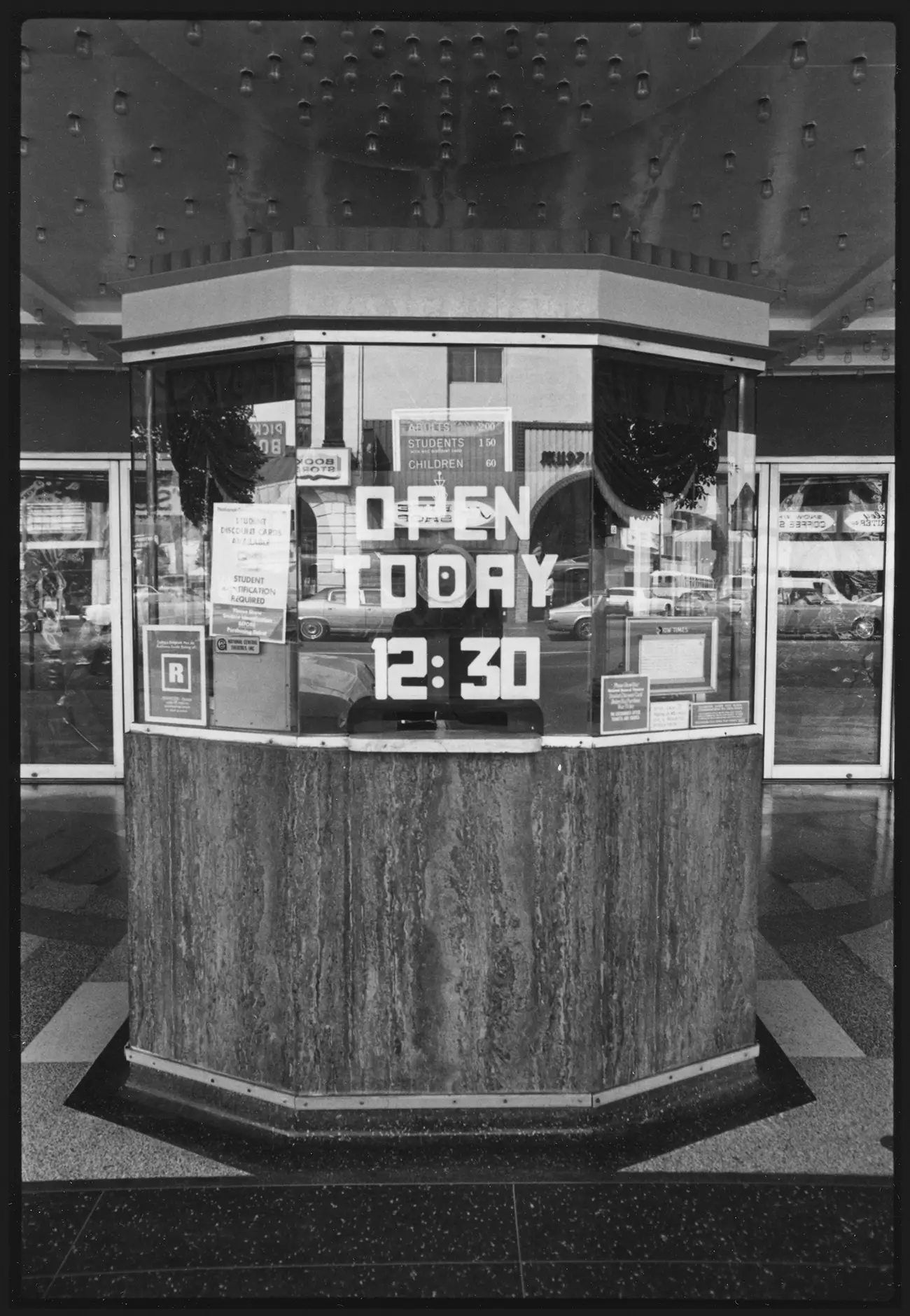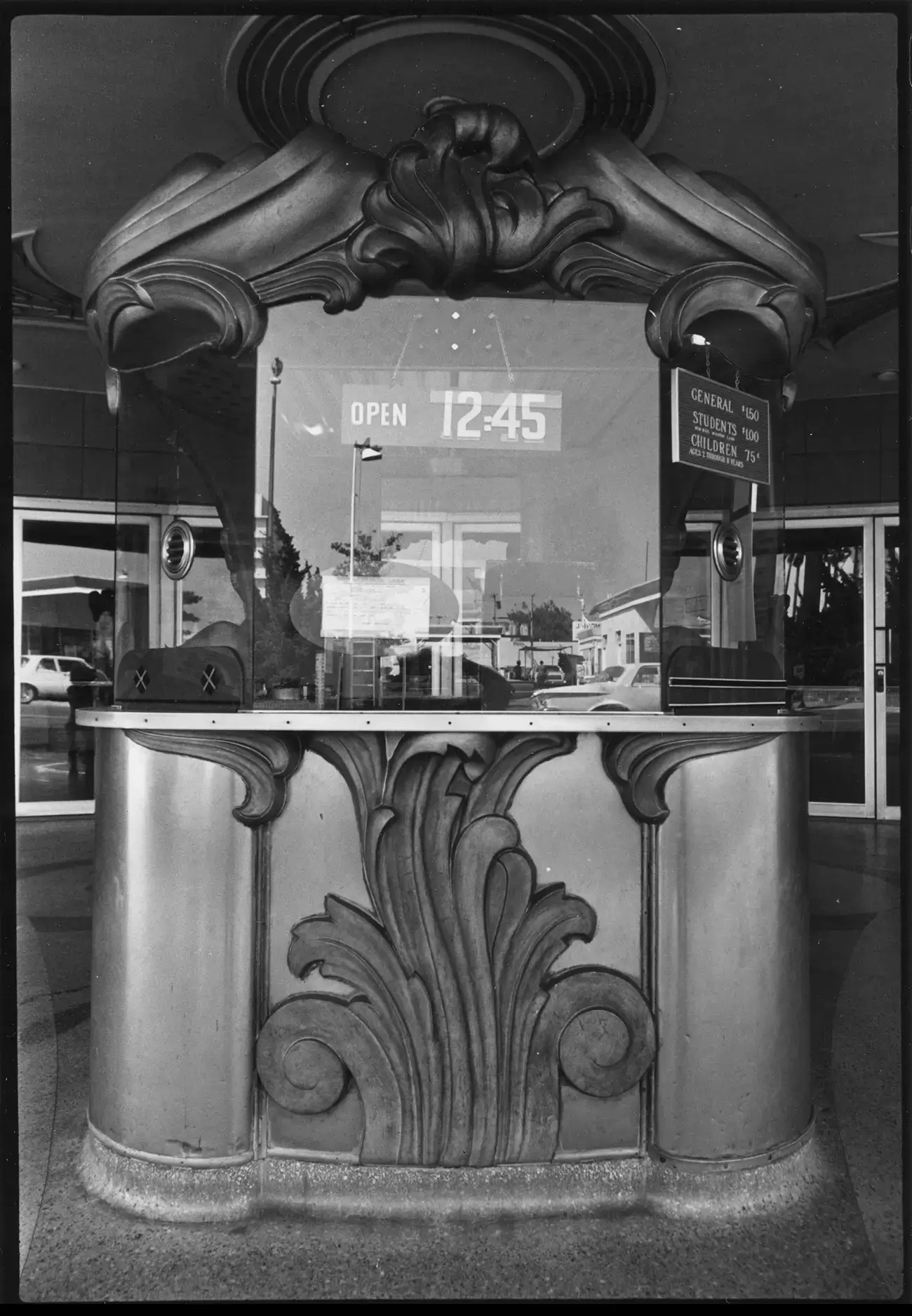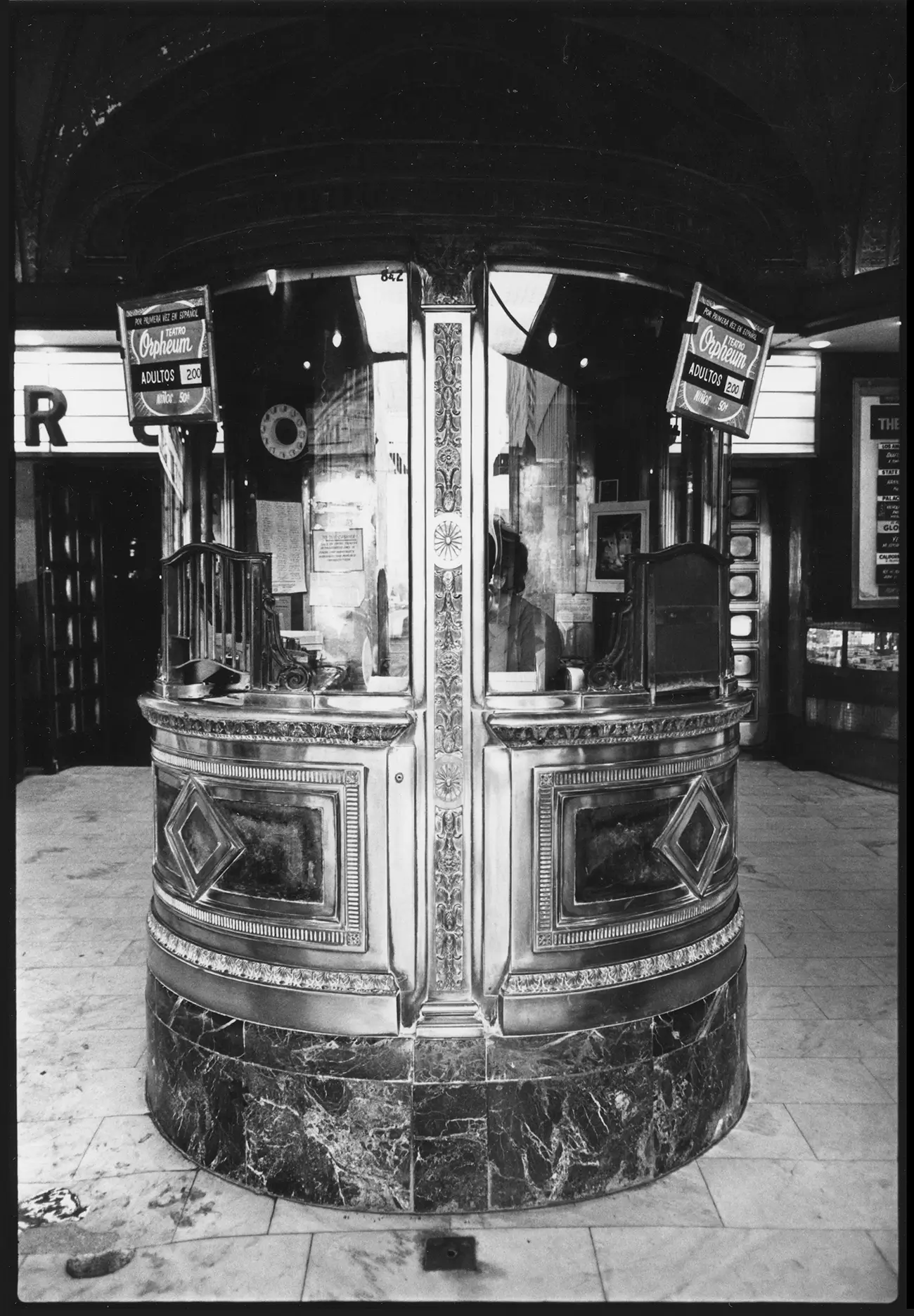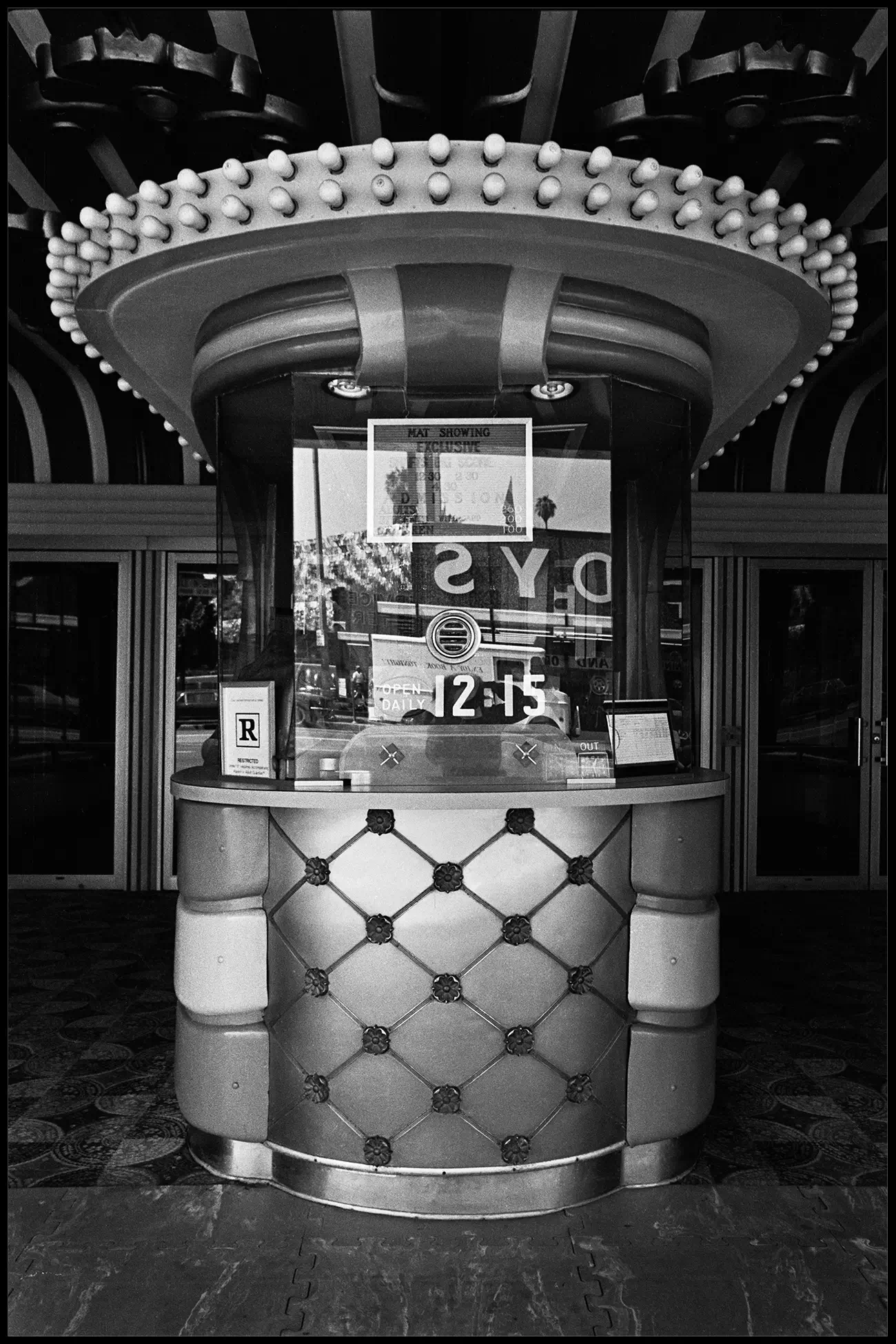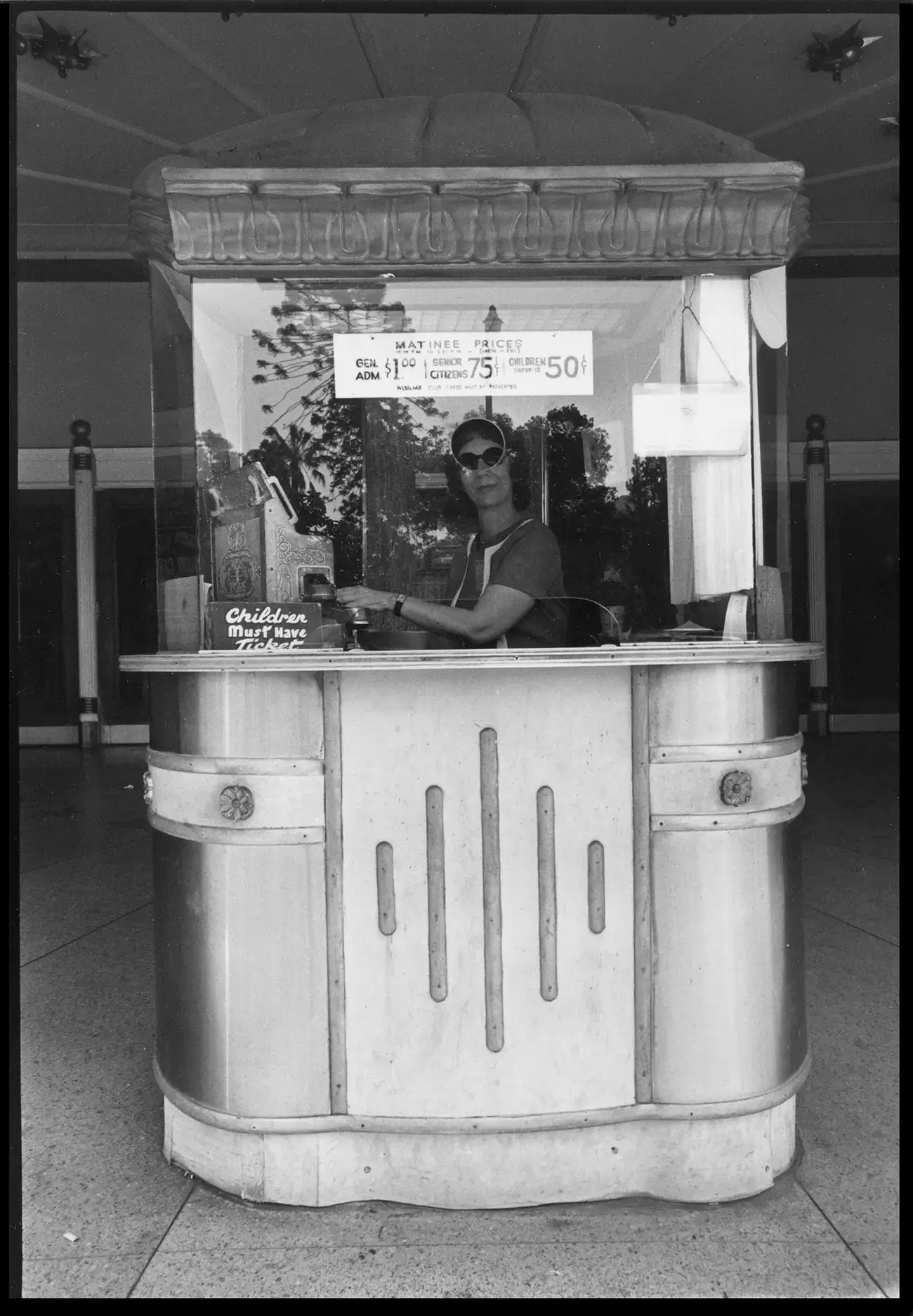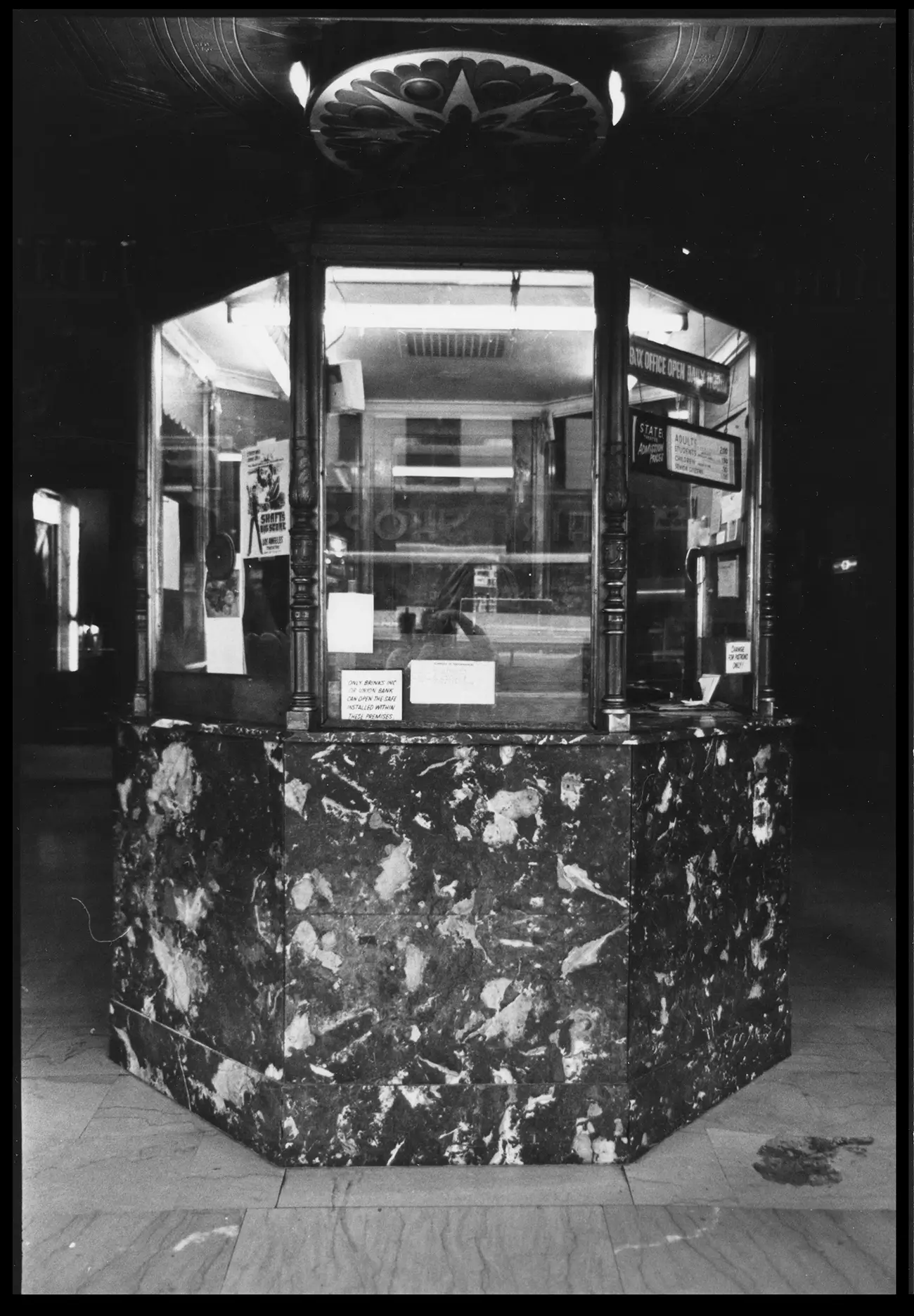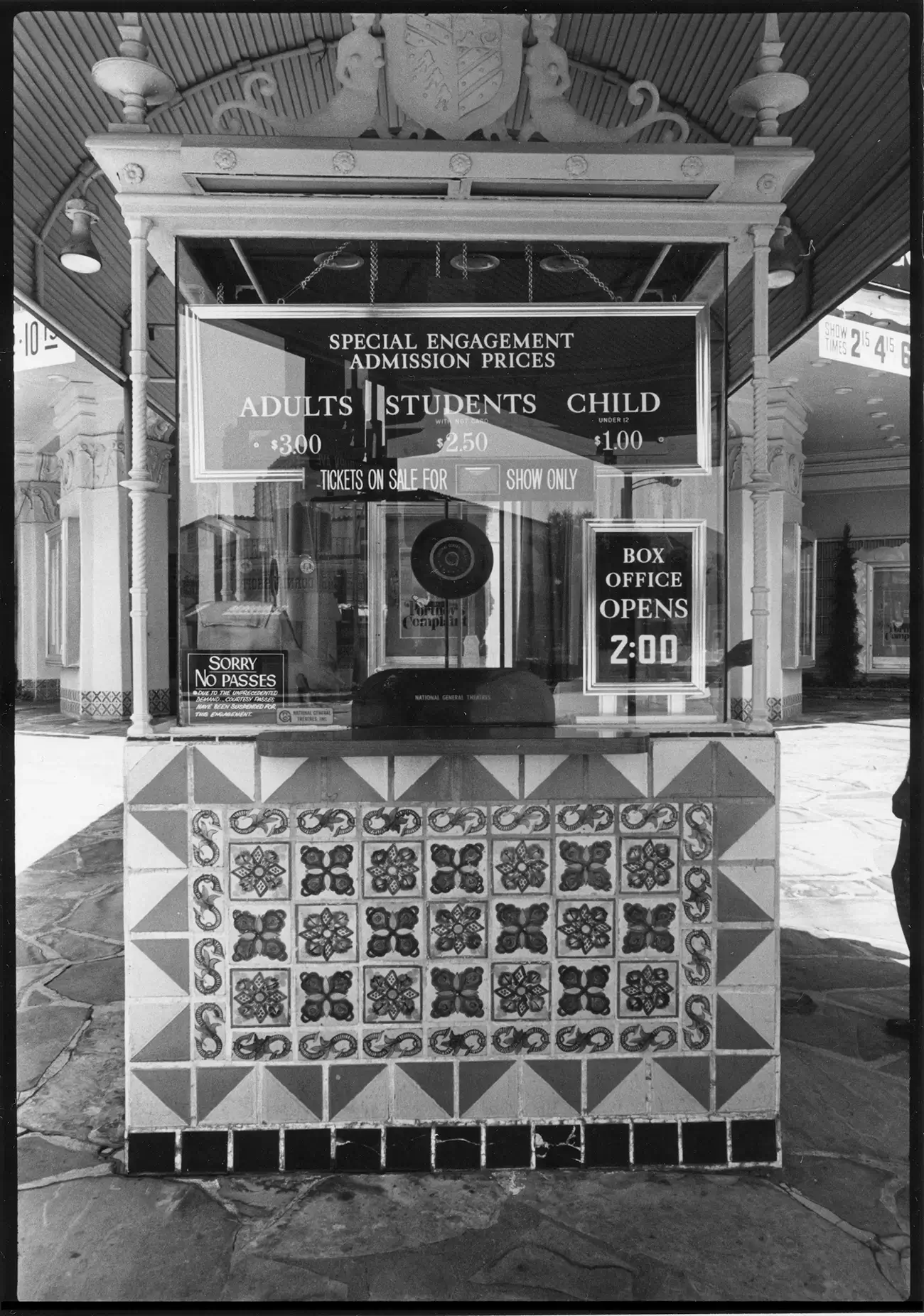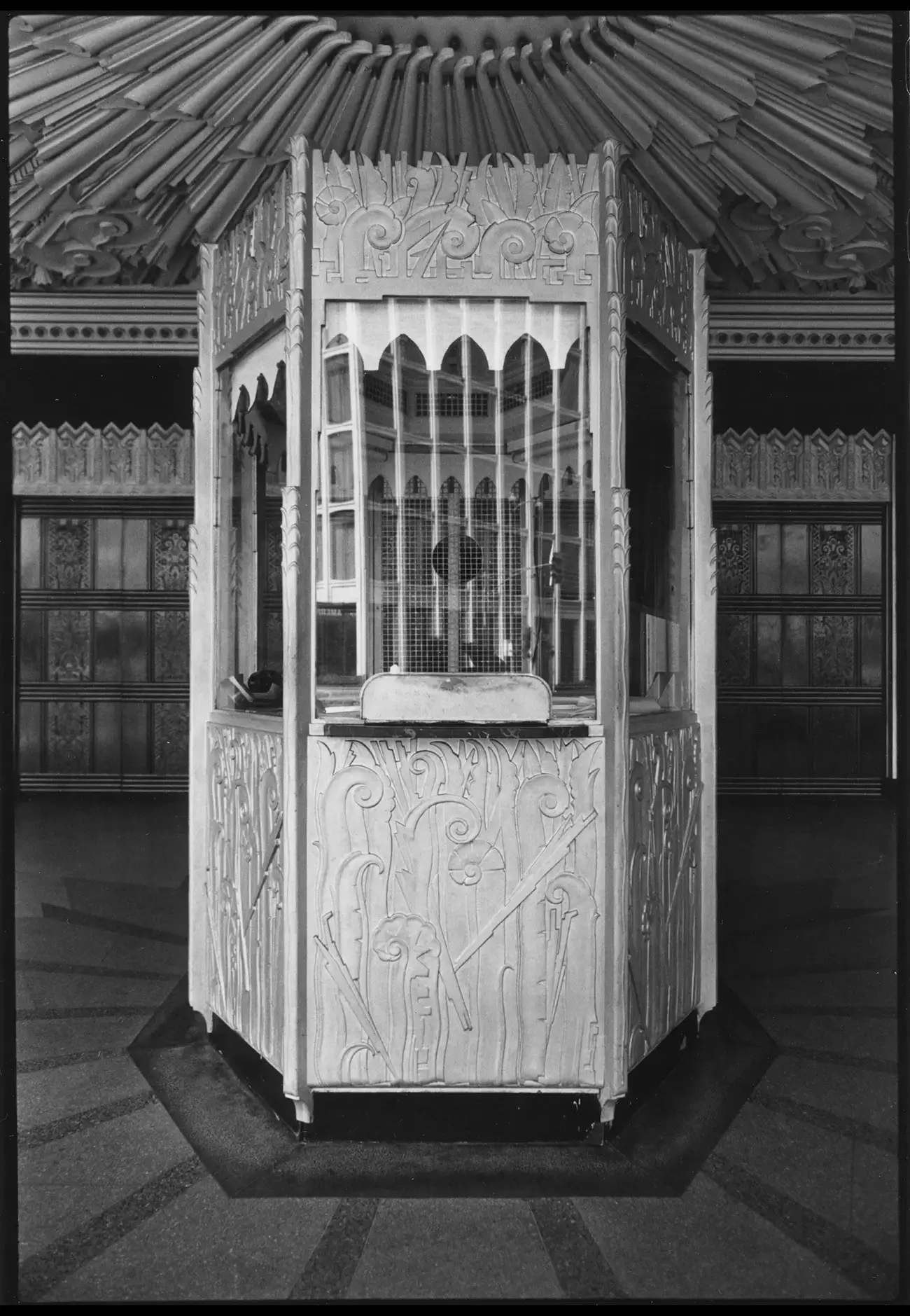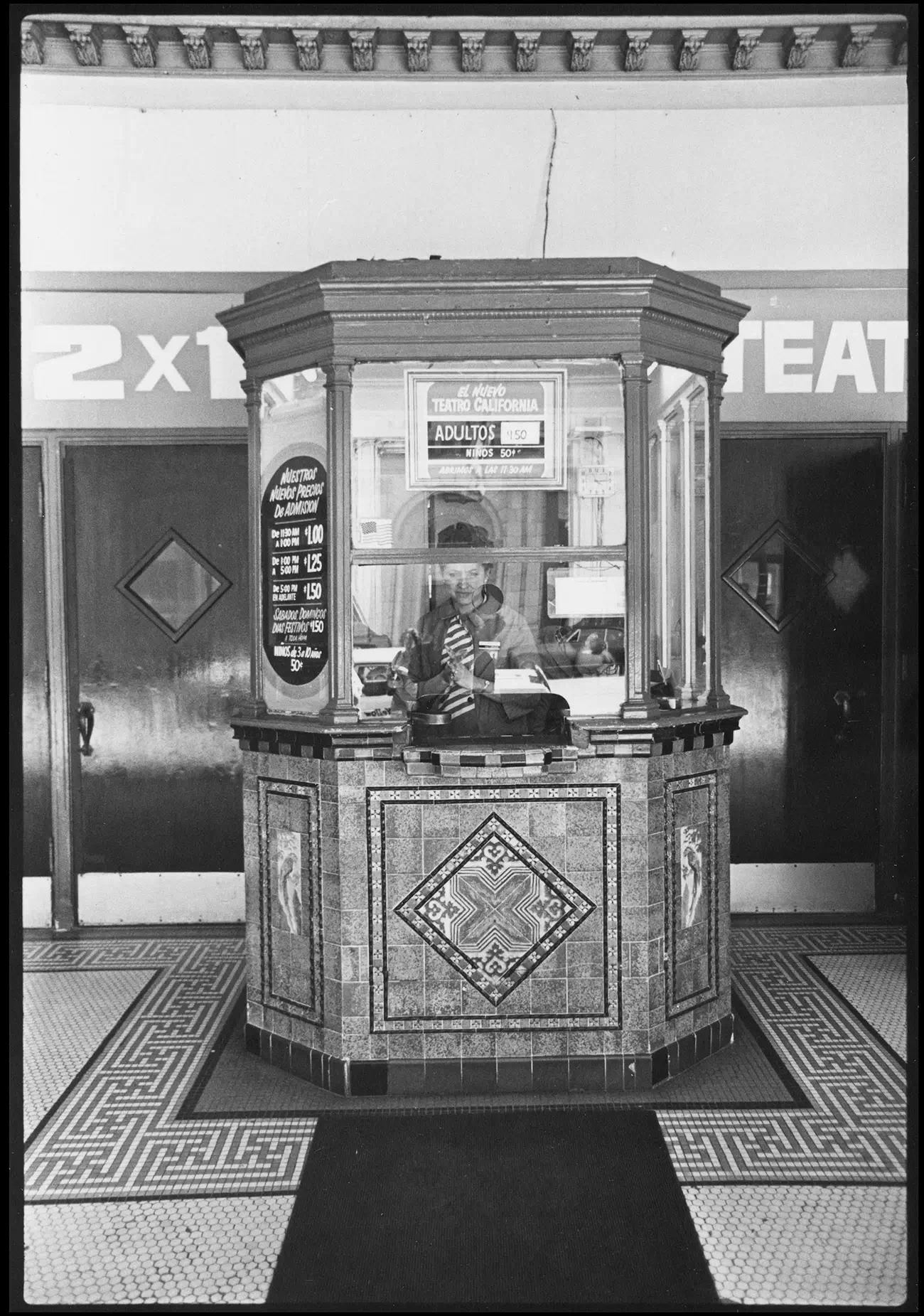When I arrived in Los Angeles in 1971, the urban landscape was totally different
from Philadelphia, where I had been living previously, and, for that matter,
anywhere else that I had lived. There was art deco everywhere and it was bright
and sunny even in the winter. The box offices welcomed you (attracted me) and
stood out like jewels surrounded by deco entrances and terrazzo sidewalks.
I started shooting box offices in 1972. These first photos lead to a project on art deco
architecture in Los Angeles that became a small picture book (titled ART DECO:
LOS ANGELES, published in 1977 by Harper and Row). I continued to
photograph theaters and box offices until 1980, when Clarkson/Potter of Crown
Publishers published MOVIE PALACES, a coffee table (large format) book
featuring theaters in the United States.
In 1975, Bill Daley of Pegacycle Lady Press asked if I would do a boxed set of prints
of box offices in Los Angeles only. The locations were confined to downtown Los
Angeles (mostly Broadway Street) and Hollywood.
I took the photos when the light was right. Sometimes the theaters were open and
there were female ticket sellers. The ticket takers were at the entrance and were
almost always male. At that time, I never saw a man inside the box office. When
the theaters were closed, the box office was empty and usually there was a sign
or clock that posted when the theater would reopen.
In ‘Bijou,’ there are 12 images. I’m not sure why; perhaps it’s a better number than
11 or 13. I have a collection of between 70 and 100 box offices from around the
country. Some are beautiful and others, in front of boarded-up theaters, were in
decay.
The Bijou prints are 8”x10” silver gelatin prints. The image size is 4 1/4” x 6 1/8”. The
edition of ‘Bijou’ was 25. I have loose silver gelatin prints of these and many
other box offices. There are a few 11x14 silver prints in my files. All the silver
prints are vintage; they were printed in the 1970s.
From the 80s on, many of the theaters I photographed became 4 plexes, were
closed, or disappeared. Others were repurposed. For instance, they became
swap meets or roller rinks. More recently some have been saved and have
become performing arts centers.
Until digital cameras, I always carried two cameras: one for black and white and the
other for color. I shot mostly tri x and ektachrome. I shot most all of the box
offices in both black and white and color.
When Crown became interested in the MOVIE PALACES book, I spent about 2
years off and on traveling and shooting. Hennessey + Ingalls republished the
book in 2000 and it stayed in publication until the end of 2012. It had a 30-year
run. It was not a big seller but I got a check each year. The book did promote
sales of images to be used in advertising. These use fees were much more than
the book sales. There are no plans to release the book again. However, Chris
Pickler of Nazraeli Press printed ‘Bijou’ as part of his ‘One-Picture’ Book Series in
2016. (Pickler had a preference for images that included the box office worker in
them. These are different from what I’ve sent you today.)
The MOVIE PALACES book identifies the locations of the theaters and photos. I did
not photograph all of the existing theaters of that time. My collection of
photographs is not definitive. I would like to photograph the restored theaters. It’s
a big job and I would need a sponsor.
I have taught at a number of schools including, in chronological order: Layton School
of Art, Milwaukee; Philadelphia College of Art (Now University of the Arts),
Philadelphia; Cal Arts, Valencia, California; Art Center College of Art, Pasadena,
California; UCLA, Los Angeles, California; Ravensbourne College of Art, London;
Liechester Polytech, Liechester, England; and Institute of Vocational Education,
Hong Kong. I retired from Otis College of Art & Design as Chair of the
Communication Arts department in 2008. I taught there for 28 years. I am now a
professor emeritus. I was trained as a designer and went to graduate school at
the Kunstgewerbeschule in Basel, Switzerland. I have been taking pictures for
more than 60 years.
I do not take any clients now (although thanks to them I have continued to work and
they have afforded me an interesting life). I am now focusing on personal
projects and have just released a book with Deadbeat Club Press entitled
‘StarStruck’, with images of Hollywood Boulevard in the early 70s. I am currently
working on two projects: ‘Paper Movies’, a study of pedestrian traffic, and a new
body of still lifes, shot in my studio, titled ‘Circles, Squares, and Triangles’.
Ave Pildas
I've taken photos for over fifty years, developing an eye for capturing everyday
interactions and uncovering deeper meanings while documenting changes, growth, and
contrasts through the themes I explore. My work has been widely exhibited in the U.S.
and internationally.
Born in Cincinnati, I began my art education in architecture but switched to design for
more creative freedom. After graduating, I moved to Pittsburgh, where I designed for
corporations and met graphic designer Paul Rand. His encouragement led me to
Switzerland for graduate studies. In 1971, I relocated to Los Angeles to work as an art
director at Capitol Records.
A horrific motorcycle accident prompted me to refocus on living fully. I was reborn as a
street photographer, and I started capturing the vibrant and seedy life of Hollywood. A
monograph of these photos, StarStruck, was recently published. Some of these images
are housed in LACMA and the New York Public Library. Lately, I've been shooting in
Leimert Park, a very diverse neighborhood in Los Angeles. I build rapport with my
subjects, often returning with signed prints, fostering mutual respect and friendship.
I've published four major books and nine self-published titles exploring specific themes.
Teaching at institutions like Otis has allowed me to share my passion with many
students. A new documentary on Amazon Prime Video showcases my life and work.
Currently revisiting my archives inspires me to continue documenting and sharing my
unique perspective.
www.avepildas.com
@avepildas
All About Ave Pildas
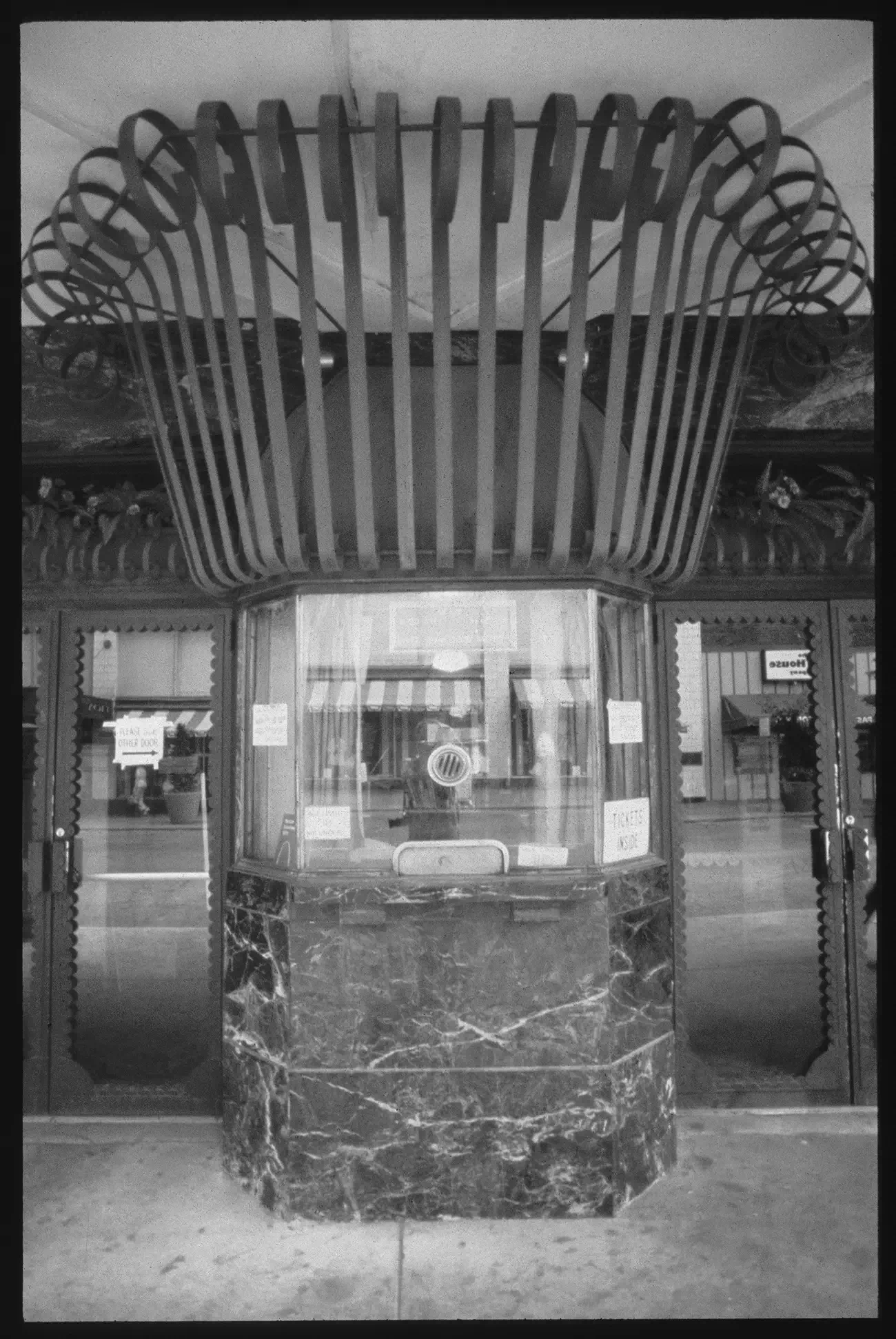
Tower (St Louis) © Ave Pildas
